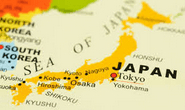Government/Policy

May 25, 2022
Commerce Adjusts AD Duties on Japanese Hot Rolled
Written by Laura Miller
The US Department of Commerce’s International Trade Administration has adjusted the antidumping duty margins on imports of hot-rolled steel flats from Japan after an administrative review covering the one-year period ended September 30, 2020.
![]()
Commerce calculated a weighted-average dumping margin of 24.07% for mandatory respondents Nippon Steel Corp., Nippon Steel Nisshin Co., and Nippon Steel Trading, according to a Federal Register filing. The margin is notably higher than the 11.7% margin applied to the companies’ shipments in the prior one-year period.
The 24.07% margin determined for Nippon Steel was also assigned to a handful of other companies that were not individually examined. Those companies include: Hanwa Co., Higuchi Manufacturing America, Hitachi Metals, JFE Steel Corp./JFE Shoji Trade Corp., JFE Shoji Trade America, Kanematsu Corp., Kobe Steel, Metal One Corp., Miyama Industry Co., Nakagawa Special Steel Inc., Nippon Steel & Sumikin Logistics Co., Okaya & Co., Panasonic Corp., Saint-Gobain K.K, Shinsho Corp., Sumitomo Corp., Suzukaku Co., Tokyo Steel Manufacturing Co., and Toyota Tsusho Corp. Nagoya. The dumping rate for these companies had previously been set at 10.95% in the prior administrative review.
Honda Trading Canada Inc. and Mitsui & Co. were found not to have shipped any of the subject material during the period of review. Any imports produced by these companies but exported by other parties without their own rate will be subject to the all-others duty rate which remains at 5.58%.
The material subject to these duties includes hot-rolled coils with a width of 12.7mm or greater, regardless of thickness, and uncoiled hot-rolled material of a thickness less than 4.75mm and a width that is 12.7mm or greater and that measures at least 10 times the thickness.
In 2021, the US imported 238,535 metric tons of hot-rolled sheet from Japan. In the first three months of this year, 84,982 metric tons were imported from the East Asian nation, according to Commerce Department figures. Annualized, this would be 42% year-on-year rise.
Hot-rolled imports from Japan, Australia, Brazil, Korea, the Netherlands, Turkey, and the UK have been subject to antidumping duties since the original trade case was brought in 2016. The duties are currently being reviewed in a five-year sunset review case which is scheduled to conclude in November of this year. The US International Trade Commission will determine whether the duties should be continued for another five years or be allowed to ‘sunset,’ or expire completely.
By Laura Miller, Laura@SteelMarketUpdate.com







